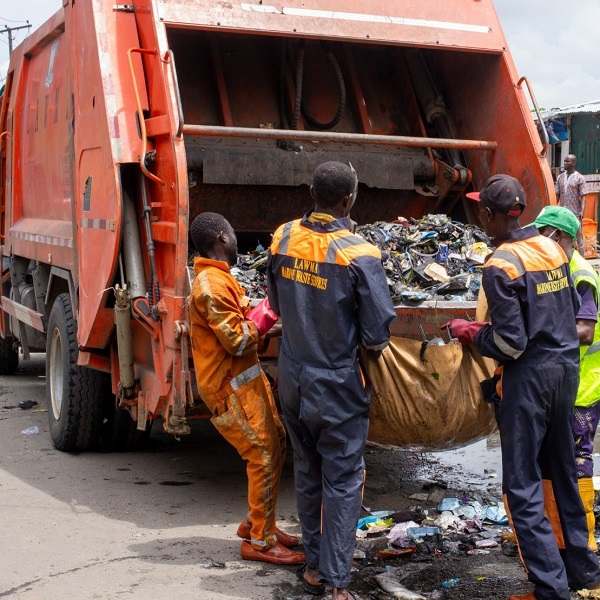By Lukman Olabiyi
The Lagos Waste Management Authority (LAWMA) has revealed reason 50 residents of the state were recently arraigned before a mobile court for reckless waste dumping.
The agency’s Managing Director/CEO, Dr. Muyiwa Gbadegesin, stated that the agency’s action was to demonstrate its commitment to enforcing the environmental laws of the state.
Gbadegesin disclosed this while speaking as a member of the panellists. at a programme organised by Babcock University Law Campus, Iperu, Ogun State.
The event tagged “Sustaining the Planet, Upholding the Law: Green Justice in Action” brought together distinguished sustainability advocates.
Gbadegesin stressed the need to harness economic opportunities in waste materials by diverting them from landfills, for recyclable purposes, and by so doing reduce environmental hazards.
He disclosed that LAWMA has undertaken an initiative to replace the landfill in Epe with a state-of-the-art waste-to-energy plant capable of processing 2,500 tons of waste daily and generating between 60 and 80 megawatts of electricity.
Gbadegesin harped on the importance of harmonising waste management practices with existing legal frameworks to unlock legal partnerships, highlighting how the agency achieved that by strengthening its legal unit and enhancing public communication strategies, adding that strong legislation backed by enforcement was key to achieving a sustainable future.
“The greatest challenge to sustainability lies in human behaviour. Whether it stems from a lack of knowledge or deeply ingrained attitudes towards waste management, we must continue to educate and enforce compliance to achieve our environmental goals,” he said.
The LAWMA boss outlined LAWMA’s approach to addressing various challenges through public education, enforcement, and community engagement, reiterating the importance of households owing bins, separating waste from sources, and utilising reusable bags.
He further spoke about the key role that LAWMA Academy plays in educating pupils and students across primary and secondary schools, with the academy regularly visiting schools for interactive learning experiences and outreach on sustainable waste management.
Contributing to the discussion, KPMG’s Sustainable Development Advisor, Kehinde Fadare, highlighted the importance of behavioural change in achieving sustainability goals.
Fadare stated that driving meaningful change required a fundamental shift in how individuals see waste, emphasising that having the right mindset would help move the focus from cost-related challenges, facilitating easier implementation of sustainability initiatives.
He called for stronger public-private partnerships, stressing that while government actions played a crucial role, collaboration with private entities was essential for leveraging mutual strengths and achieving sustainable results.
Similarly, Modupeoluwa Williams, Sustainability Consultant at Forvis Mazars, identified shifting cultural behaviours as a significant challenge in waste management, particularly regarding consumption patterns.
She referenced the transition from reusable bottled drinks to single-use plastic bottles, acknowledging this as an advancement that came with environmental repercussions and calling for the adoption of best practices such as reducing, substituting, recycling, and ensuring safe disposal of waste.
Expanding on the popular “Reduce, Reuse, Recycle” concept, the panel agreed that there should be a fourth principle, “Refuse,” urging individuals to actively reject items contributing to environmental degradation, noting that this would help curb the influx of waste at its source.
Also present at the event were Mrs. Folashade Kadiri, Head of Public Affairs at LAWMA; Mrs. Bukola Adeyemo, Head of LAWMA’s Legal Unit.
